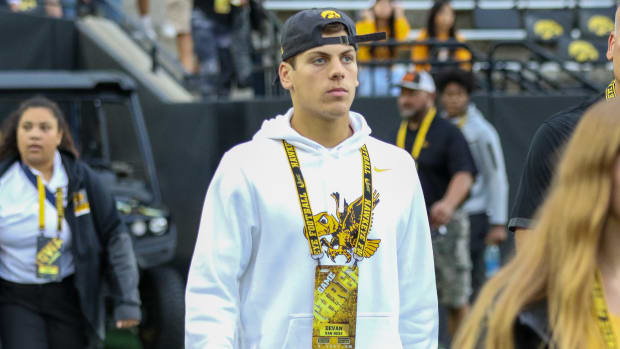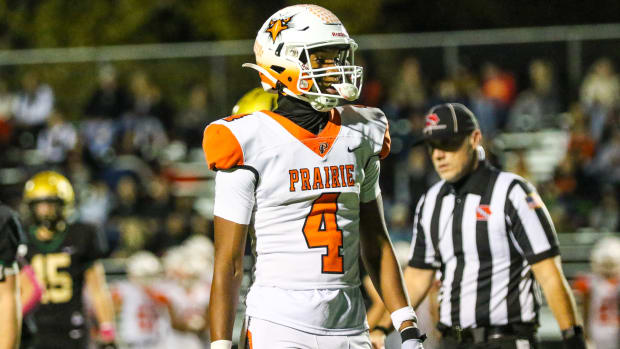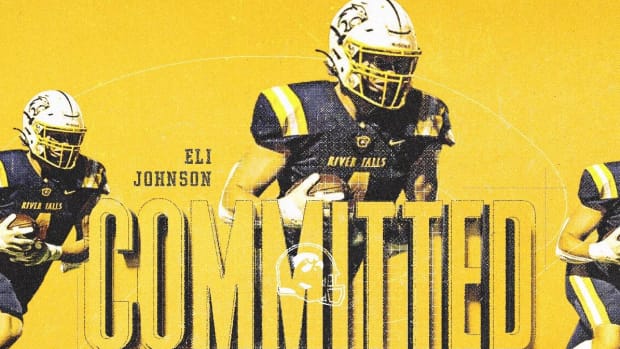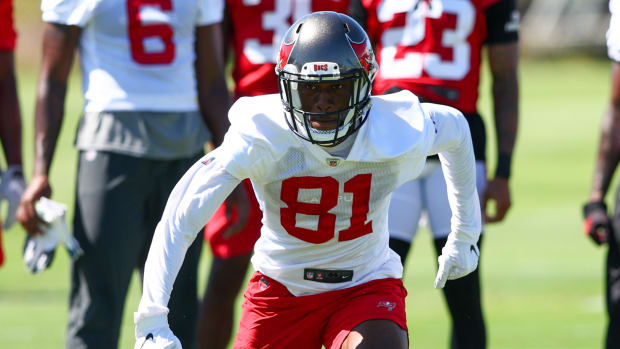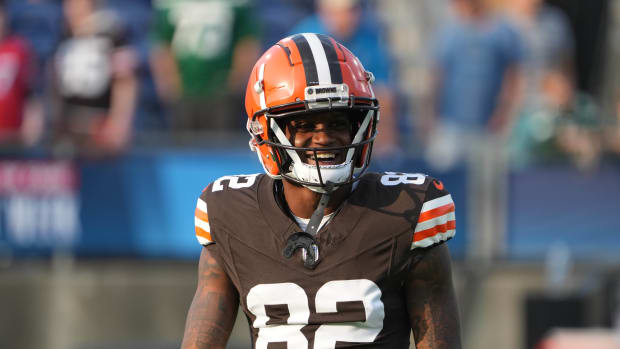With Hawkeyes, Everything Is On Hold
There are a lot of moving parts to a college football program, even in the spring — 15 practices, plenty of position and team meetings, and recruiting.
All of that has been shut down by the NCAA and the Big Ten over concerns of the spread of the COVID-19 coronavirus.
Iowa, unlike some Division I schools, had yet to begin spring practice when everything was stopped.
All of the moving parts aren’t moving, but coach Kirk Ferentz and his staff are finding alternative ways to work.
“I’m sure most of us have probably torn up about 10 blueprints for the next incremental part of the future,” Ferentz said on a Wednesday teleconference.
The Hawkeyes were coming off a 10-3 season, but spring practice was going to be crucial for them because of so many personnel losses. Quarterback Nate Stanley graduated, and offensive tackle Tristan Wirfs, defensive end A.J. Epenesa and safety Geno Stone entered the NFL draft.
Ferentz said the spring practice time is important for instruction, especially for younger players who have moved into bigger roles. Some Division I programs had completed at least some spring practice time.
“There’s a big difference when you can meet with players in conjunction with practice,” Ferentz said. “Installation meetings are great, film study and meetings are great. But there really is no better teaching platform than presenting material, doing it, reviewing it, then doing it over again. Those are things you miss from this abstention, if you will.
“All of those exposures on practice, all of those repetitions players get during the course of spring, it’s an important time. It’s a time of growth, a time of opportunity, just like bowl preparation is. This is a period we’re losing. But it’s a nationwide issue.”
One of the key positions that needed some clarity was at quarterback. Spencer Petras was expected to be at No. 1 on the depth chart, with Alex Padilla also in camp.
Petras was No. 2 behind Stanley, a three-year starter, last season and played sparingly. Incoming recruit Deuce Hogan wasn’t going to be on campus until the summer.
Petras, who is from California, is one of the few players who stayed on campus.
“Spencer felt like he would be better off here, given the circumstances,” Ferentz said.
Ferentz said he doesn’t feel like having positional meetings would do much good under the circumstances. But he wasn’t worried about Petras.
“I’m sure Spencer is working on his own, that would be my guess,” Ferentz said. “Spencer works out 12 months a year. I’m sure he’s doing his own homework.”
Ferentz and his staff can’t do any in-person recruiting — the NCAA on Wednesday extended its recruiting dead period to May 31. The coaching staff has been able to stay in communication with recruits, though.
Ferentz said spring practices were a good time for recruits and their families to visit campuses. And he thinks even summer recruiting will be affected.
“I can’t envision camps popping up,” he said. “Camps used to be prominent in June. I can’t imagine that will be taking place. There’s a lot of ramifications on the recruiting front.”

